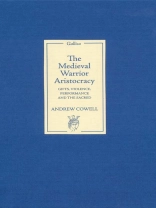A major reconsideration of the relationship between warrior aristocrats, epics, and heroes in medieval culture.
The process of identity formation during the central Middle Ages (10th-12th centuries) among the warrior aristocracy was fundamentally centered on the paired practices of gift giving and violent taking, inextricably linked elements of the same basic symbolic economy. These performative practices cannot be understood without reference to a concept of the sacred, which anchored and governed the performances, providing the goal and rationale of social and military action.
After focussing on anthropological theory, social history, and chronicles, the author turns to the ‘literary’ persona of the hero as seen in the epic. He argues that the hero was specifically a narrative touchstone used for reflection on the nature and limits of aggressive identity formation among the medieval warrior elite; the hero can be seen, from a theoretical perspective, as a ‘supplement’ to his own society, who both perfectly incarnated its values but also, in attaining full integrity, short-circuited the very mechanisms of identity formation and reciprocity which undergirded the society.
The book shows that the relationship between warriors, heroes, and their opponents (especially Saracens) must be understood as a complex, tri-partite structure – not a simple binary opposition – in which the identity of each constituent depends on the other two.
ANDREW COWELL is Associate Professor of the Department of French and Italian, and the Department of Linguistics, at the University of Colorado.
İçerik tablosu
Introduction
The Power of Giving
The Symbolic Constitution of the Giving Subject: William the Conqueror and Robert Guiscard
Violence and ‘Taking’: Towards a Generalized Symbolic Economy
Taking an Identity: The Poem of the Cid
The Sacred Kept
The Hero, Gratuity and Alterity:
The Song of Roland
The Supplemental Hero:
Raoul of Cambrai
Female Integrity and Masculine Desires in
The Nibelungenlied
Fractured Identities, and the Solution of Chivalry: William of Orange
Conclusion: A New Different Warrior Aristocracy
Bibliography of Works Cited












